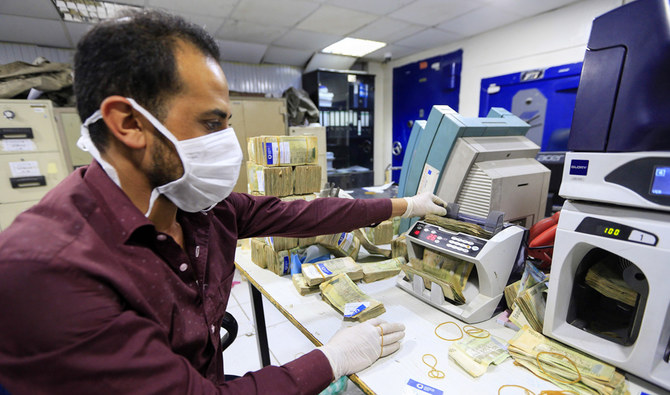AL-MUKALLA: When the Iran-backed Houthi militias advanced toward his home city of Taiz in early 2015, Ibrahim Al-Zubairi decided not to flee the city, hoping that the war would come to an end.
“I stayed put because I heard people saying the war would end soon,” Al-Zubairi, a 21-year-old college student, told Arab News.
To his disappointment, Taiz, Yemen’s third most important city, saw the fiercest clashes between government forces and the rebels, which claimed the lives of hundreds of people and ruined most of the city’s infrastructure.
Each time he thought of leaving the city, he heard about a new round of peace talks that would end the conflict.
In 2017, he abandoned hope and fled to the southern port city of Al-Mukalla, where he enrolled at college.
“The war must stop immediately and completely,” Al-Zubairi said, expressing hope that pressure by the international community would lead to halting the hostilities. “I hope that peace prevails in Yemen.”
Al-Zubairi is an example of tens of thousands of Yemenis who have been displaced over the last six years as the Houthis began expanding militarily across Yemen, triggering bloody battles.
On Thursday, positive responses by Yemen’s warring groups rekindled hopes for a ceasefire that could pave the way for a comprehensive settlement to end the war in Yemen.
The UN's Yemen Envoy Martin Griffiths called upon Yemeni parties to convene for an urgent meeting to discuss the ceasefire.
“I am calling the parties to an urgent meeting to discuss how to translate their stated commitments to the Yemeni people into practice. I expect the parties to heed Yemen’s desire for peace and immediately cease all military hostilities,” Griffiths said in a statement on Thursday.
Citing many previous short-lived truces, many Yemenis doubt the factions will adhere to their commitments.
Speaking to Arab News from Marib, Kamal Al-Muradi, a government soldier, said his forces were currently battling a heavy offensive by the Houthis in Marib’s Serwah, ruling out ending the war any time soon.
“The Houthis are more dangerous than the coronavirus,” Al-Muradi said, noting he and other troops who hail from the central province of Marib would keep fighting until the rebels were repelled.
“There is no way we stop fighting before we end the Houthi threat to Marib,” he added.
The war must stop immediately and completely. I hope that peace prevails in Yemen.
Ibrahim Al-Zubairi, Student
The Houthis have scored major territorial gains in northern Yemen by seizing control of two districts in Jawf and pushing government troops out of the mountainous Nehim district, near Sana’a.
Their next target is the oil and gas rich city of Marib, according to local officers.
Government commanders said that they had received orders from their superiors to stop fighting in response to the UN envoy’s call.
Abdul Basit Al-Baher, the Yemeni army spokesperson in Taiz, told Arab News: “We welcome any humanitarian initiative. But from our experience with the Houthis, they have never committed to any peace initiative.
“The Houthis should first lift their blockade on Taiz and stop shelling residential areas and planting landmines ahead of any truce.”
Doubts
Given Yemen’s weak health system, amid the outbreak of the coronavirus across much of the world, experts have encouraged the country’s warring factions to stop fighting to allow health workers to divert efforts to preventing the spread of the disease.
“We all have to be united to save Yemen from a potential coronavirus outbreak which, if happens, will have disastrous consequences given that our health system has collapsed,” said Nadwa Al-Dawsari, a Yemeni conflict analyst and a non-resident fellow at the Middle East Institute.
Based on the scale of the Houthi offensive in northern Yemen and their breaches of previous agreements and truces, Nadwa predicted the proposed truce would not last.
“The Houthis have used every truce and agreement they had with others before to refuel, regroup and launch military offensives. Their actions on the ground don’t always match their rhetoric when it comes to commitment to peace unfortunately.”
This time, Nadwa said, the Houthis would exploit the truce to prepare for a push to take Marib.
“My worry is that the Houthis will use this truce to push into Marib, which will be disastrous. The Houthis definition of a truce is not about suspending military operations. Their definition is the suspension of airstrikes and Saudi-led coalition support for the government. Their definition of peace is for the government to collapse and everyone else to accept them as their rulers.”


























